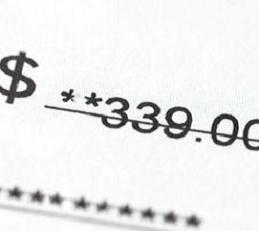Who can issue commercial paper
Why do companies issue commercial papers? What is a commercial paper? How many companies issue commercial paper? Is commercial paper a money market security? Marcus Goldman of Goldman Sachs was the first dealer in the money market to purchase commercial paper, and his company became one of the biggest commercial paper dealers in America following the.
Company has been sanctioned working capital limits by banks or Financial Institutions.
Borrowed amount of the company is classified as a standard asset by the bank. Or the commercial paper is sold to a dealer who sells the paper in the market. The motivations for loan commitments backing. Commercial papers can be issued in two ways. How do global banks scramble for liquidity?
The issue of commercial papers is highly regulated and supervised by the Reserve Bank of India (RBI ). A commercial Paper (CP) is an unsecured loan raised by firms in money markets through instruments issued in the form of a promissory note. CPs can be issued for maturities between a minimum of 7.
Corporations can market the securities directly to buy and hold investors like money market funds. It has been announced that the Bank of England (the Bank) is to operate on behalf of HM Treasury (HMT) a new Covid-Corporate Financing Facility (CCFF). Dealers include large securities firms and subsidiaries of bank-holding companies.
Small investors cannot directly invest in commercial paper. Secondary market for commercial papers is less liquid. In India, commercial paper can be issued by large corporates, primary dealers and all-India financial institutions. Generally, only corporations with the highest credit rating can issue commercial paper. Some companies with weaker credit can get credit enhancements, so that they can issue commercial paper.
Asset-backed commercial paper is backed by high quality collateral. Any corporate with a high rating can diversify their sources of short-term borrowings using CP. Government agencies and large companies often use commercial paper to fill in gaps in their cash flow. Private companies may issue short-term debt instruments to cover the time between performing work for a major client and receiving payment.
The main issuers of commercial paper are finance companies and banks, but also include corporations with strong credit, and even foreign corporations and sovereign issuers. Corporations issue commercial paper to obtain ready cash, in exchange for which they commit to redeeming the paper when due for more than its issue price. This is known as trading at a discount - commercial paper does not make interest payments like a bon but its yield is derived from the difference between the maturity value and value when issued.
Its proceeds are typically used for financing current assets or inventories, or meeting short-term liabilities. Procedure for issue of commercial paper (a) The issuer may appoint an adviser for assistance on the structure and placement of the commercial paper issue.
Most commercial paper is offered in maturities of 2days or more. All public corporations can issue commercial paper. Major investors in commercial paper include money market mutual funds and commercial bank trust departments. It is important to note that not all banks issue commercial paper.
If your bank does not issue commercial paper , UK Finance has provided a list of those banks that are able to assist. UK Finance: COVID-Corporate Financing Facility If your commercial paper is eligible for the scheme, your bank will help you to issue it to the CCFF. In other words, instead of making loans and advances, the bank will deal in the issue.
Another underlying issue is the time dimension.

Comments
Post a Comment